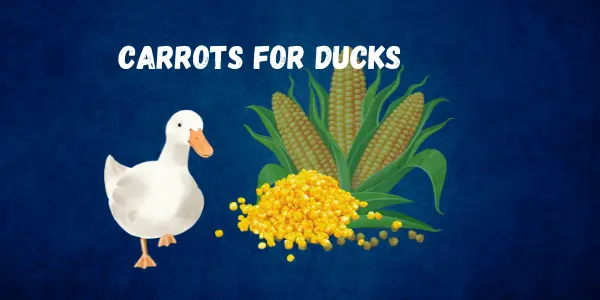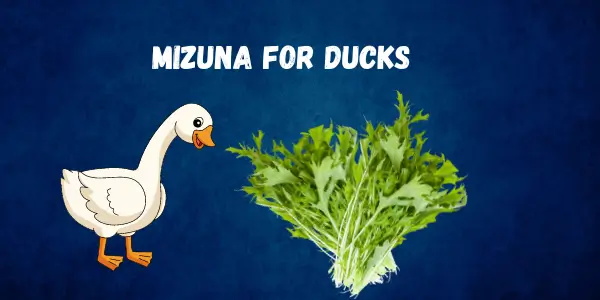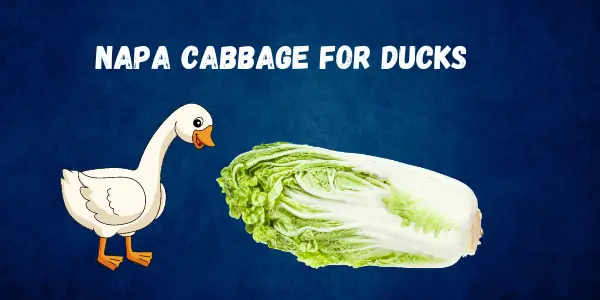Can Ducks Safely Eat Squash? Don’t Miss These Important Feeding Tips
Published: 13 Sep 2024
Yes, ducks can eat squash. It is a safe and nutritious addition to their diet when given in moderation. Squash provides essential vitamins, minerals, and hydration. However, preparation matters. Some parts, like seeds and skin, may require extra care before feeding.
Can Ducks Eat Squash – Is Squash Safe for Ducks to Eat?
Squash is generally safe for ducks, but some considerations apply. Ducks can eat different types of squash, including butternut, acorn, and pumpkin. However, feeding in excess can lead to digestive issues.
Key factors to consider:
- Portion control: Too much can cause crop impaction.
- Preparation: Hard raw squash may be difficult to eat.
- Seeds and skin: Some parts require moderation.

Nutritional Value of Squash for Ducks
Squash is a good source of vitamins and minerals:
- Vitamin A: Supports vision and immune health.
- Vitamin C: Helps with overall immunity.
- Potassium: Essential for muscle function.
- Fiber: Aids digestion when given in small amounts.
- Water content: Helps keep ducks hydrated.
Feeding squash in a balanced diet ensures ducks get these benefits without nutritional imbalances.
Types of Squash Ducks Eat:
Can Ducks Eat Raw Squash?
Yes, ducks can eat raw squash, but it should be chopped into small, manageable pieces. Hard raw squash, like butternut, may be too tough for ducks to peck and digest. Soft varieties, such as zucchini, are easier to consume.
For better digestion:
- Cut into small pieces to prevent choking.
- Mix with other foods for variety.
- Ensure access to water for easier digestion.
Can Ducks Eat Cooked Squash?
Cooked squash is easier to eat and digest. Steaming or boiling squash softens it without removing essential nutrients. Avoid adding salt, sugar, or spices, as these are harmful to ducks.
Best ways to feed cooked squash:
- Plain, mashed squash: Easy for ducks to eat.
- Soft chunks: Helps prevent crop impaction.
- Mixed with duck feed: Adds variety to their diet.
Can Ducks Eat Squash Seeds?
Squash seeds are generally safe for ducks but should be given in moderation. While they contain healthy fats and protein, excessive consumption may lead to fatty liver disease.
How to safely feed squash seeds:
- Offer hulled seeds to reduce choking risk.
- Limit quantity to avoid digestive problems.
- Mix with other foods for a balanced diet.
Pumpkin and butternut squash seeds are more digestible when lightly crushed. Avoid seeds from stone fruits, as they may contain harmful compounds.
Can Ducks Eat Squash Leaves and Skin?
Ducks can eat squash leaves and skin, but some precautions apply.
Are Squash Leaves Safe for Ducks?
Squash leaves are safe in small amounts. They contain fiber and minerals but have a rough texture, which can be harder to digest.
Considerations when feeding squash leaves:
- Young leaves are softer and easier to eat.
- Avoid wilted or moldy leaves to prevent health issues.
- Chop into small pieces for easier consumption.
Feeding squash in a variety of forms—flesh, seeds, and leaves—can add diversity to a duck’s diet. However, moderation is key to avoiding digestive problems.
Benefits of Feeding Squash to Ducks
| Benefits of Feeding Squash to Ducks |
|---|
|
Squash is a valuable addition to a duck’s diet when fed in moderation. It provides essential nutrients, aids digestion, and helps with hydration. Including squash in a balanced diet supports overall health without causing nutritional imbalances. Good Source of Vitamins and MineralsSquash is packed with nutrients that support a duck’s health:
Feeding squash in controlled amounts ensures ducks receive these benefits without overloading their diet with excessive fiber. Supports Digestion and Crop HealthDucks rely on a healthy crop and digestive tract to process food efficiently. Squash contributes to digestion by:
Since ducks don’t have teeth, soft foods like cooked squash are easier to process. Combining squash with other duck feed options ensures a well-rounded diet. Hydration Benefits from Squash’s Water ContentSquash contains a high percentage of water, which helps maintain hydration, especially during hot weather. Ducks require fresh drinking water at all times, but water-rich foods like squash provide an additional hydration source. Hydration benefits include:
Offering squash alongside fresh water ensures ducks can digest it properly without issues. |
Can Ducklings Eat Squash?
Ducklings can eat squash, but their diet requires careful balance. Their nutritional needs are different from adult ducks, so squash should only be a small part of their overall feed.
Precautions When Feeding Squash to Ducklings
Young ducklings have sensitive digestive systems, so introducing new foods should be done cautiously. Key precautions include:
- Avoiding large chunks: Soft or mashed squash is easier to eat.
- Limiting raw squash: Cooked squash is gentler on digestion.
- Ensuring balanced nutrition: Squash should not replace essential protein sources like starter feed.
Feeding too much fiber-rich food at an early stage can interfere with nutrient absorption, so squash should be an occasional treat rather than a staple.
Best Way to Introduce Squash into a Duckling’s Diet
To safely add squash to a duckling’s diet:
- Start with small portions mixed into their regular feed.
- Use cooked, mashed squash to make digestion easier.
- Monitor their response to check for any digestive issues.
- Ensure access to fresh water to help process fiber content.
Ducklings need a protein-rich diet for proper growth, so squash should only be a minor supplement rather than a significant portion of their food intake.
Digestibility of Squash Skin for Ducks
Ducks can eat squash skin, but its digestibility depends on the variety and preparation. Thin-skinned squash like zucchini is easier to eat, while tougher skins from butternut or acorn squash can be difficult to digest.
Considerations when feeding squash skin:
- Chop into small pieces to prevent choking.
- Cook tougher skins to make them softer.
- Avoid moldy or spoiled skin to prevent digestive issues.
If ducks struggle with digestion after eating squash skin, removing it before feeding is a better option.
How to Feed Squash to Ducks
Squash should be prepared properly to ensure ducks can eat it safely. Cutting, cooking, and mixing squash with other foods can improve its digestibility and nutritional value.
Best Ways to Prepare Squash for Ducks
Different preparation methods affect how well ducks can eat and digest squash. The best ways include:
- Chopped raw squash (for softer varieties like zucchini).
- Steamed or boiled squash (for tougher types like butternut).
- Mashed squash (easy for all ducks to eat).
- Mixed with feed (to add variety to their diet).
Avoid adding seasoning, salt, or oil, as these are not suitable for ducks.
How Much Squash Should Ducks Eat?
Squash should be a small part of a duck’s overall diet. While it offers vitamins and hydration, it lacks the protein and essential nutrients found in commercial duck feed.
Feeding guidelines:
- Treat, not a staple: Squash should make up no more than 10–15% of the diet.
- Small amounts at a time: Overfeeding can cause digestive issues.
- Monitor digestion: If ducks show signs of crop impaction or loose droppings, reduce the amount.
Mixing Squash with Other Duck Feed
To provide a balanced diet, squash can be combined with other foods. Good combinations include:
- Duck pellets + chopped squash for added moisture.
- Squash + grains (rice, oats, barley) for variety.
- Squash + leafy greens (kale, lettuce, spinach) for additional nutrients.
Mixing squash with a proper duck feed ensures ducks receive all essential nutrients without overloading their diet with fiber.
How Often Can Ducks Eat Squash?
Squash can be fed occasionally, but not daily. Ducks need a variety of foods for balanced nutrition.
Moderation and Balanced Diet Considerations
A well-rounded diet for ducks includes grains, proteins, and vegetables. While squash is beneficial, it should not replace essential feeds like duck pellets or protein sources.
Guidelines for balanced feeding:
- Once or twice a week is enough for squash as a treat.
- Mix with protein sources to avoid nutritional gaps.
- Observe feeding behavior to ensure ducks digest it well.
Can Too Much Squash Cause Problems?
Overfeeding squash can lead to digestive issues, including:
- Crop impaction: If ducks consume too much fiber without enough water.
- Loose droppings: Excessive water content can lead to diarrhea.
- Nutrient imbalances: Squash lacks sufficient protein and essential minerals.
Feeding squash in controlled portions prevents these issues.
Comparing Squash with Other Fruits and Vegetables
Squash is one of many vegetables ducks can eat, but how does it compare?
| Food | Benefits | Considerations |
| Squash | Hydration, vitamins, fiber | Must be prepared properly |
| Pumpkin | Similar to squash, high in fiber | Seeds should be limited |
| Watermelon | High water content, good treat | High sugar, feed in moderation |
| Lettuce | Easy to digest, hydrating | Avoid iceberg (low nutrients) |
| Carrots | Rich in beta-carotene | Best when grated or cooked |
Squash offers hydration and nutrients, but variety is key for a well-balanced diet.
Conclusion
Ducks can eat squash safely when prepared properly. It provides vitamins, hydration, and digestive benefits, but should only be a small part of their diet. Feeding squash in moderation, mixing it with other foods, and ensuring a balanced diet help maintain a duck’s overall health.

- Be Respectful
- Stay Relevant
- Stay Positive
- True Feedback
- Encourage Discussion
- Avoid Spamming
- No Fake News
- Don't Copy-Paste
- No Personal Attacks

- Be Respectful
- Stay Relevant
- Stay Positive
- True Feedback
- Encourage Discussion
- Avoid Spamming
- No Fake News
- Don't Copy-Paste
- No Personal Attacks





